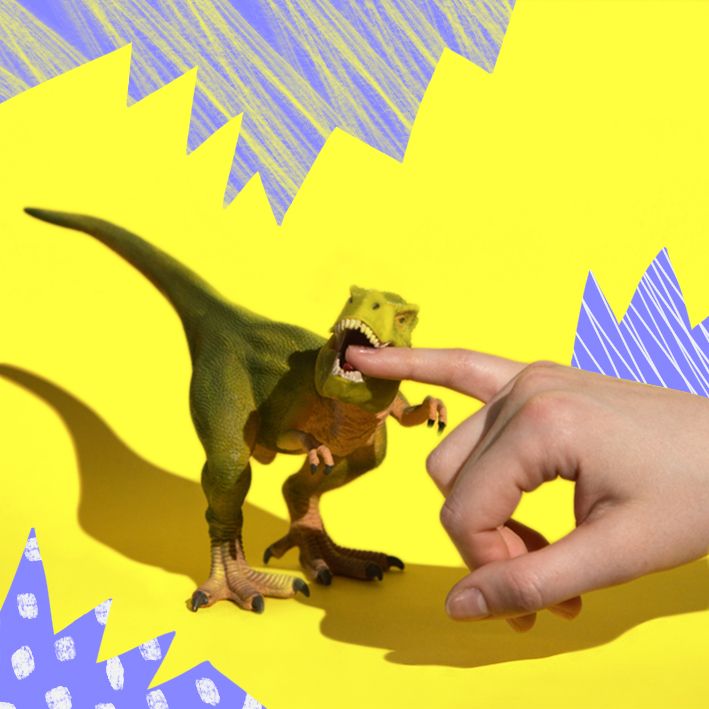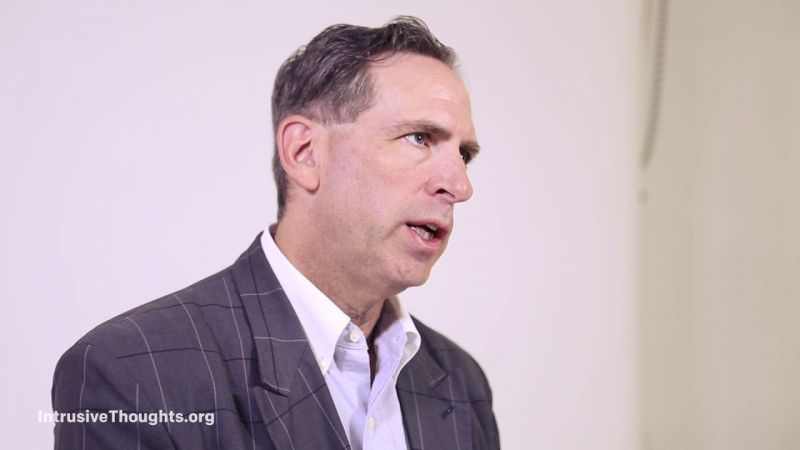My OCD Story (Well...Some of It)
Do these thoughts mean I’m a dangerous person?
Escrito por Steph Bolduc

01 Since the age of nine, Steph has struggled with intrusive thoughts about contamination and accidentally harming others.
02 When her intrusive thoughts started to get violent, she finally did research and discovered she had OCD.
03 Therapy and medication have helped her recovery, allowing her to turn her experiences into an educational opportunity.
I’d always been a fairly anxious kid.
Around the age of nine, I started to struggle with contamination and health anxiety. I was constantly washing my hands to the point that they were bright red, cracking, and bleeding. I didn’t recognize it as OCD, or as much of a problem at all. I knew I was hyper aware of germs but I thought it meant I was careful.
It wasn’t until other people started commenting on how often I was washing my hands that I realized things had gotten out of control. The problem was made especially clear when one day, my aunt kissed me on the cheek and I spent the next half hour washing my face in a panic. But again, I didn’t know it was OCD.
When I turned 14 things started to get really weird. A fear of unintentionally harming people followed me wherever I went. The obsession began after the birth of my little brother. I started getting distressing thoughts of hurting him by accident — or on purpose — followed by a fear of poisoning his food and forgetting about it. I would stay up late after feeding him, just to make sure I didn’t poison him and lose all memory of it. It made absolutely no sense, but I had to keep doing it.

OCD3: What is Responsibility OCD?
When I started getting violent intrusive thoughts, I lived every day in constant fear of myself. This became unbearable very quickly. I finally looked up the thoughts I was having and was immediately hit with links to websites about Obsessive Compulsive Disorder. I remember reading article after article, relieved that I’d found an answer, but devastated upon learning that it wouldn’t just go away.
I walked around my neighborhood crying when I realized that what I had was chronic. I was only 14 and it felt like my life had ended.
My Harm OCD and hypochondria continued to follow me through the rest of my teen years. I didn’t get help for my OCD outside of the countless hours of compulsive research I was doing each day. But I realized as time went on, that things were getting easier to deal with. Not easy, but easier. It was a real turning point for me when I got my first therapist at the age of 18 and was formally diagnosed with OCD. I was finally ready to begin healing.
My first year of therapy was amazing. I gained the confidence to say for sure that what I was dealing with was OCD. When I started medication, things really began looking up. I was placed on an SSRI and an atypical antipsychotic for the treatment of my comorbid depression and OCD. As I gained a clearer perspective of my disorder, I began to incorporate this into my education. I was a college student studying literature at the time, and I started to notice OCD thinking patterns in some of the protagonists of my studies.
I noticed this especially within Hamlet and became transfixed by the insight into mental illness that Shakespeare had allowed his audience to explore. I went on to write my senior thesis on melancholy (which shares a striking resemblance with OCD) within Hamlet, comparing much of his behaviors to that found in OCD.
I began my journey with OCD feeling as if it were putting an end to my future. Little did I know it would become a tool to help better my education as I shared my experiences throughout my academic career. I am now applying to graduate programs with the same intent — to study OCD in literature, and to bring solidarity to those who often feel the most alone.
Apoya nuestro trabajo
Nuestra misión es cambiar la manera en que el mundo percibe la salud mental.



















